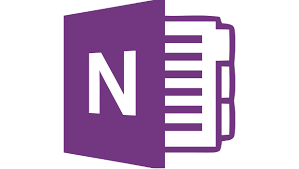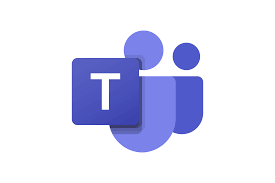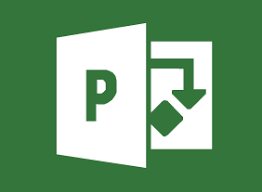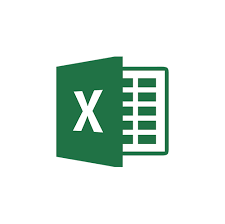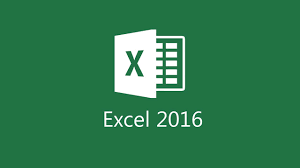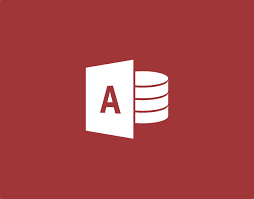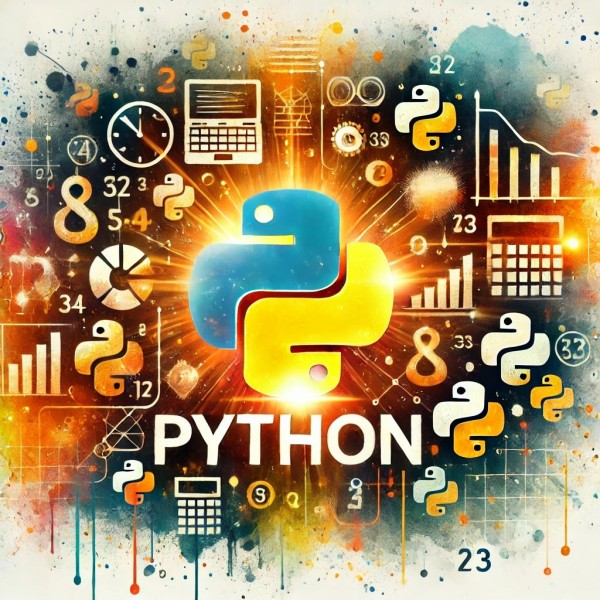
QCTO SP-230375
Python Programmer, NQF L4
Skills Programme ID: SP-230375: Python Programmer NQF Level 4, 60 Credits
Qualification Details:
Registration start date: 11-03-2022
Registration end date: 11-03-2027
Last date for enrolment: 11-03-2028
Last date for achievement: 11-03-2031
Entry LEVEL Requirements:
Gr. 11 with Maths Lit and English
Related Registered Qualifications:
OC: Artificial Intelligence Software Developer, NQF Level 05, 209 credits
OC: Cloud Administrator, NQF Level 04, 149 credits
OC: Cybersecurity Analyst, NQF Level 05, 173 credits
OC: Data Science Practitioner, NQF Level 05, 185 credits
OC: Quality Test Automator, NQF level 05, 179 credits
Purpose And Rationale of The Qualification
In South Africa, according to the 2020 list of occupations in high demand: Technical Report (Department of Higher Education and Training) published in 2021 it is clear that the role of the programming and its derived skills programmes have been identified as pivotal by several Sector Education and Training Bodies (SETAs). Responding to the rapid skills demand by supplying Python programmers will thus have a positive impact on the economy.
Python programmers will play a pivotal role in establishing a data-driven culture and currently available advanced technology to manipulate these big data and complex datasets.
It is also important to note that there are great opportunities to become self-employed and the entrepreneurial orientated Python Programmers will form new companies (with the employment creation associated to it).
A demand for competent Python programmers exist in any economic sector, e.g. finance, insurance, healthcare, energy, environmental, government, transportation, agriculture and food. International research also confirms the phenomenal growth in the need for qualified programmers, including Python Programmers.
Typical learners include school leavers and persons who want to enter the ICT sector with programming skills. Minimum requirements are a Gr 11 with Maths Lit and English.
No formal registration is required to function as a Python Programmer.
Python Programmers can be employed in developing websites and software, task automation, data analysis, and data visualisation, search engine optimisation, Blockchain, etc.
A Python Programmer will be able to implement solutions to solve real-life problems in an efficient manner applying a knowledge and understanding of the principles of programming with Python and applicable tools.
Skills Programme Outcomes:
Tasks that the learner will be able to know, do and understand after achievement of the skills programme include:
- Create well-written and readable Python programs, using a disciplined coding style, including comments and indentation standards.
- Work collaboratively in a team and execute version control.
Skills Development Provider Accreditation Requirements:
Knowledge Modules
Physical Requirements:
- The provider must have lesson plans and structured learning material or provide learners with access to structured learning material that addresses all the topics in all the knowledge modules as well as the applied knowledge in the application.
|
Masterskill provides access to the following in the learning programme: Student & Instructor Programme Guidelines; Student & Instructor Learning Materials [eBooks and/or videos (where applicable)]; Additional Resources [website links and/or articles (where applicable)]; Assessment Guidelines; Portfolio of Evidence (including formative, summative and FISA assessments); Assessment Guide for Assessors; Programme Strategy (alignment matrix documentation). |
QCTO/ MICT SETA requirements
Human Resource Requirements:
- Lecturer/learner ratio of 1:20 (Maximum)
- Qualification of lecturer (SME):
- NQF 5 qualified in industry recognised qualifications with 1-year experience in the IT industry
- Cybersecurity vendor certification
- Assessors and moderators: accredited by the MICT SETA
|
Providers are required to appoint own instructors, assessors and moderators. |
Legal Requirements:
- Legal (product) licences to use the software for learning and training.
|
Masterskill provides access to virtual exercises which are hosted via the GMetrix LearnKey platform, no additional software licenses are required to use these virtual exercises. Additional software referenced throughout the courses include: Visual Studio 2022 Python 3.9 PyCharm Community Edition |
- OHS compliance certificate
|
Providers are required to ensure that all legal compliance requirements are met. |
Application Modules
Physical Requirements:
- Valid licenses software and application, including OS.
- Internet connection and hardware availability.
- Examples and information specified in the scope statement and all the case studies, scenarios and access to hardware and software implied in the scope statements of the modules.
- Remote learners: Provider must provide business IT simulation system (e.g. invoice processing).
|
Masterskill provides access to virtual exercises which are hosted via the GMetrix LearnKey platform, no additional software licenses are required to use these virtual exercises. Additional software referenced throughout the courses include: Visual Studio 2022 Python 3.9 PyCharm Community Edition The following hardware and software requirements should be seen as a guideline: For this course, you will need one computer for each student and one for the instructor. Each computer will need the following minimum hardware configurations: • 1 gigahertz (GHz) 64-bit (x64) processor. • 4 gigabytes (GB) of Random Access Memory (RAM). • 35 GB available storage space. • 5400 RPM hard disk drive • Monitor capable of a screen resolution of at least 1,024 × 768 pixels, at least a 256-color display, and a video adapter with at least 4 MB of memory. • Bootable DVD-ROM or USB drive. • Keyboard and mouse or a compatible pointing device. • Fast Ethernet (100 Mb/s) adapter or faster and cabling to connect to the classroom network. • IP addresses that do not conflict with other portions of your network. • Internet access (contact your local network administrator). • (Instructor computer only) A display system to project the instructor's computer screen. Software • Windows 10 (64-bit). • Operating System: Linux, Ubuntu, or macOS • Google Chrome • Python version 3.9.0 (python-3.9.0-amd64.exe). • PyCharm Community Edition version 2020.2.3 (pycharm-community-2020.2.3.exe). Both Python and PyCharm are distributed with the course data files. Python is distributed under the Python Software Foundation License (PSFL). PyCharm Community Edition is distributed under the Apache License 2.0. • If necessary, software for viewing the course slides. (Instructor machine only.) • Atom IDE (https://atom.io/) • Git (https://git-scm.com/download/linux) The code bundle for this course is also hosted on GitHub at: https://github.com/ TrainingByPackt/Version-Control-with-Git-and-GitHub. |
Human Resource Requirements:
- Qualification of lecturer (SME):
- NQF 5 industry recognised qualification with 1 year relevant experience
- Assessors and moderators: accredited by the MICT SETA
|
Providers are required to appoint own instructors, assessors and moderators. |
Legal Requirements:
- Legal (product) licences to use the software for learning and training
- OHS compliance certificate
- Ethical clearance (where necessary)
|
Providers are required to ensure that all legal compliance requirements are met. |
Work Opportunities
Employment opportunities:
- Self-employed,
- Working remotely,
- Programming companies,
- Any industry.
Further Learning
Further learning opportunities include:
- Occupational Certificate: Artificial Intelligence Software Developer, NQF Level 05, 209 Credits
- Occupational Certificate: Cloud Administrator, NQF Level 04, 149 Credits
- Occupational Certificate: Cybersecurity Analyst, NQF Level 05, 173 Credits
- Occupational Certificate: Data Science Practitioner, NQF Level 05, 185 Credits
- Occupational Certificate: Quality Test Automator, NQF Level 05, 179 Credits
- Occupational Certificate: Software Developer, NQF Level 05, 220 Credits
Learners may also enroll for international certifications such as:
- Pearson IT Specialist Certification: Python
Curriculum Information
Learning Unit 1: Python Programming
60 hrs 45 min / 8 days
ELO1: Describe the basics of Python Programming.
- ELO2: Programme effectively using Python frameworks and functionalities.
- ELO3: Work collaboratively in a team using GitHub platform.
Resources Required for this learning unit:
- Access to equipment, internet connectivity
The course content has been divided into 3 elements:
Book A: NQF95-023SG: Introduction to Basic Programming
Learners will only be required to cover the following lessons:
- Lesson 1: Processing Data
- Lesson 2: Manage software development source files using appropriate tools
The remaining lessons may be used upon facilitator discretion, should the facilitator not cover these lessons it must be allocated to self-study.
Lesson 1 & 2 covers the following knowledge module / topics:
900221-000-00-KM-01, Introduction to Python Programming, NQF Level 4, Credits 2
- KM-01-KT01: Computers 10%
Suggested Facilitation Duration: 9 hrs.
Associated Assessment Activity:
- Formative Assessment 1 (FA1) = 1 hour, 100 marks
Assessment Duration: 1 hr.
Book B: ELK94-021: Introduction to Programming with Python
Learners will be required to cover all the lessons:
- Lesson 1: Setting up Python and developing a simple application.
- Lesson 2: Processing Simple Data Types.
- Lesson 3: Processing Data Structures.
- Lesson 4: Writing Conditional Statements and Loops in Python.
- Lesson 5: Structuring Code for Reuse.
- Lesson 6: Writing Code to Process Files and Directories.
- Lesson 7: Dealing with Exceptions.
These lessons will cover the following knowledge and practical modules / topics:
- 900221-000-00-KM-01, Introduction to Python Programming, NQF Level 4, Credits 2
- 900221-000-00-KM-02, Python Data Types and Structures, NQF Level 4, Credits 6
- 900221-000-00-KM-03, Principles of Programming with Python, NQF Level 4,
Credits 4 - 900221-000-00-KM-04, Intermediate Programming Principles in Python, NQF Level 4, Credits 6
- 900221-000-00-KM-05, REST API and GUI in Python, NQF Level 4, Credits 2
- 900221-000-00-PM-01, Programming Basics for Beginners, NQF Level 4, Credits 3
- 900221-000-00-PM-02, Use Built-In Python Data Types, NQF Level 4, Credits 8
- 900221-000-00-PM-03, Program with Python, NQF Level 4, Credits 6
- 900221-000-00-PM-04, Intermediate Programming with Python, NQF Level 4,
Credits 8 - 900221-000-00-PM-05, Getting Started with REST API and GUI, NQF Level 4,
Credits 4 - 900221-000-00-PM-06, Use Cases with Python, NQF Level 4, Credits 11
Suggested Facilitation Duration: 13 hrs.
Associated Assessments:
- Formative Assessment 2 (FA2) = 1 hour, 32 marks
- Formative Assessment 3 (FA3) = 1 hour, 32 marks
- Formative Assessment 4 (FA4) = 30 minutes, 19 marks
- Formative Assessment 5 (FA5) = 1 hour, 31 marks
- Formative Assessment 6 (FA6) = 30 minutes, 20 marks
- Formative Assessment 7 (FA7) = 8 hours
- Formative Assessment 8 (FA8) = 5 hours
- Summative Assessment 1 (SA1) = 1 hour 30 minutes, 80 marks
- Summative Assessment 2 (SA2) = 1 hour, 41 marks
- Summative Assessment 3 (SA3) = 2 hours, 98 marks
- Student Reflection = 15 minutes
Assessment Duration: 22 hrs. 45 min.
Book C: ELK35–436: Version Control with Git and GitHub
Learners will be required to cover all the lessons:
- Lesson 1: Introduction to Version Control.
- Lesson 2: Versioning Commits.
- Lesson 3: Fetching and Delivering Code.
- Lesson 4: Branches.
- Lesson 5: Collaborative Git.
- Lesson 6: Automated Testing and Release Management.
These lessons will cover the following exit level outcome:
ELO3: Work collaboratively in a team using GitHub platform.
These lessons also link to the following knowledge module topic:
KM-01-KT04: GIT
Suggested Facilitation Duration: 16 hrs.
Associated Assessments:
- Formative Assessment 9 (FA9) = 30 min, 21 marks
- Formative Assessment 10 (FA10) = 6 hours
Assessment Duration: 6 hrs. 30 min
Content: All the above content will be covered by eBooks via Masterskill LMS platform.
Content is grouped into a student and instructor edition:
- SP-230375-LU1SG_rev1.0: LU1-Python Programmer, Student Edition
- SP-230375-LU1IG_rev1.0: LU1-Python Programmer, Instructor Edition
Each edition consists of:
- Student / Instructor Programme Guidelines
- Book A: NQF95-023SG: Introduction to Basic Programming, Student and Instructor Digital Courseware (Learning Material). Print option is available.
- Book B: ELK94-021: Introduction to Programming with Python, Student and Instructor Digital Courseware (Learning Material). Print option is available.
- Book C: ELK35–436: Version Control with Git and GitHub, Student and Instructor Digital Courseware (Learning Material). Print option is available.
- Additional Web Resources
- Assessment Guidelines
Access to the above student and instructor material will be provided on the Masterskill LMS. Facilitator/Assessor should consult the Instructor Programme Guidelines document which will provide an overview of the course content and how it should be presented.
Practical: CertPREP Gateway-LearnKey and GMetrix
- ELO1: Describe the basics of Python Programming.
- ELO2: Programme effectively using Python frameworks and functionalities.
Resources Required for this learning unit:
- Access to equipment, internet connectivity
- Simulated Platform or Lab Environment with applicable tool and virtual machines, refer to LearnKey access provided.
In order to prepare learners for the final integrated supervised assessment (FISA), access to a simulated platform environment i.e. LearnKey and GMetrix has been provided. Learners will receive access to pre-assessments, video training sessions, exercise labs, post-assessment and a workbook. It is suggested that learners work through these resource in their own time in preparation for the FISA.
Suggested Contact Hrs: 20 hrs
Content is grouped into a student edition:
- CertPREP Gateway-LearnKey and GMetrix, Student Edition
Each edition consists of:
- LearnKey–Demonstration Video
- LearnKey–Brochure
- GMetrix–Demonstration Video
- GMetrix–Brochure
- LearnKey and GMetrix–SMS Client
- LearnKey and GMetrix–User Guide
- LearnKey and GMetrix–Gateway
Curriculum Hours Breakdown
60 credits = 600 Notional Hours, 75 days
|
Course Duration 300 hrs. |
Assessment Duration 154 hrs. |
FISA 146 hrs. |
|
Facilitated sessions = 38 hrs. Book A = 9 hrs. Book B = 13 hrs. Book C = 16 hrs. |
FA= 24 hrs. 45 min SA = 4 hrs. 30 min Total = 29 hrs. 15 min |
CertPREP Gateway-LearnKey and GMetrix = 20 hrs. FISA = 6 hrs. |
|
Learner own preparation |
Learner own preparation |
Learner own preparation |

.jpg)
.jpg)
.jpg)
.jpg)
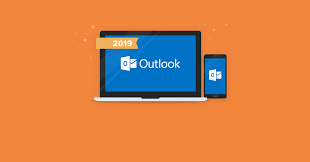
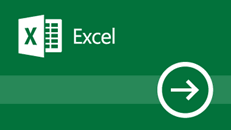
.png)
